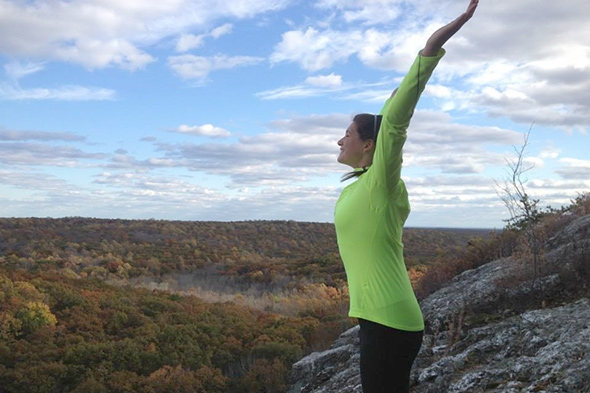Read the full story, published in the October 2014 issue of the Dartmouth Sustainability Project newsletter, “A Deeper Shade of Green.”
Autumn Brunelle ’15, an environmental studies major, is writing a senior honors thesis on the effects of climate change on the maple syrup industry. Her advisers for the project are Richard Howarth, professor and chair of the Environmental Studies Program; David Lutz, postdoctoral research associate; and Selena Ahmed, a former lecturer in the Environmental Studies Program. Brunelle spoke with Sustainability Fellow Rebecca Hoeffler about her work.

Maple sugaring is a unique topic for research. How did you become interested in pursuing this idea? I have always been interested in sugaring. I’m from northern Minnesota where sugaring is a common practice and a big part of our culture. For example, during the winter at my high school, students would learn to prepare and harvest sugar in a traditional manner. I was excited to see that maple sugaring was also a part of the Dartmouth culture and that sugaring happens annually at the Dartmouth Organic Farm. Then, during my sophomore winter, I took a class called “Conservation and Biodiversity” with Visiting Environmental Studies Professor Selena Ahmed. Professor Ahmed researches climate change’s effects on tea in China, but she mentioned that she was interested in similar experiments with maple syrup while she was in the Northeast. I knew immediately that I wanted to help.
How did you first get involved with this research? I spent my sophomore summer with Professor Ahmed helping her interview maple syrup farmers. We traveled across Vermont and called almost every farmer in New Hampshire. Hearing first hand stories about how weather, technology, and social practices impact maple syrup was fascinating. Syrup harvesters feel the impacts of climate in so many ways, and it was eye-opening to learn about their struggles. For example, the amount of profit farmers receive and syrup they can produce is 100 percent dependent on the weather. It’s a trickle down effect. If the weather doesn’t cooperate, then the syrup doesn’t run. If the syrup doesn’t run, then the farmer can’t produce as much product: maple syrup. Therefore, it’s a classic supply and demand problem. After realizing how little people knew about the current problems that threaten syrup farmers, I wanted to find a way to help increase the overall visibility of these issues.
